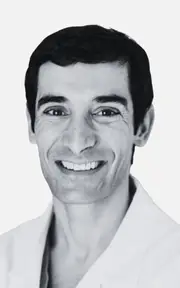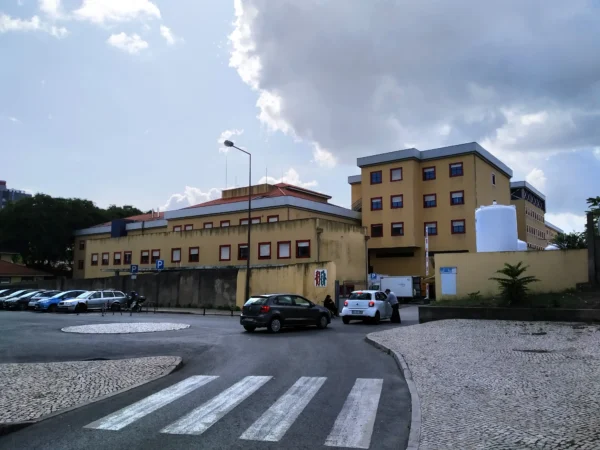Hospital Curry Cabral, Unidade Local de Saúde de São José | IASIOS Accredited Centre
 Prof. Dr. Tiago Bilhim is an established interventional radiologist whose clinical, academic, and leadership work has significantly contributed to the advancement of image-guided therapies in Portugal and beyond. He currently serves as Director of the Interventional Radiology Units at Curry Cabral Hospital, Unidade Local de Saúde de São José, an IASIOS Accredited Centre, and SAMS Hospital in Lisbon.
Prof. Dr. Tiago Bilhim is an established interventional radiologist whose clinical, academic, and leadership work has significantly contributed to the advancement of image-guided therapies in Portugal and beyond. He currently serves as Director of the Interventional Radiology Units at Curry Cabral Hospital, Unidade Local de Saúde de São José, an IASIOS Accredited Centre, and SAMS Hospital in Lisbon.
He obtained his medical degree in 2004, completed his radiology residency with subspecialisation in interventional radiology in 2011, and earned both his PhD in Radiology and the European Board of Interventional Radiology (EBIR) certification in the same year. His doctoral research on prostatic artery embolization established him as an early expert in embolization therapies, particularly in the field of men’s health.
Prof. Bilhim’s clinical and research interests include prostatic and uterine artery embolization, hepatobiliary and oncologic interventions, and diabetic foot revascularization. A Fellow of CIRSE and SIR, he has been actively involved in CIRSE’s Standards of Practice and Scientific Programme Committees and served as Vice-President of the Portuguese IR Association (APRI).
He has contributed extensively to education and professional development through his teaching at NOVA Medical School and as Editor-in-Chief of F-type questions for the European Board of Interventional Radiology. He currently serves as Editor in Chief at Cardiovascular and Interventional Radiology (CVIR). His work continues to strengthen the role of interventional oncology through innovation, clinical excellence, and commitment to standardized patient care.
Get to know Prof. Bilhim a little bit better!
What are your hobbies and interests outside of your professional work in medicine?
I love music, traveling, and spending time with my family. Naturally, as a Portuguese, I admire a good red wine — since some might argue, white wines are not really wines.
Can you share a pivotal experience from your education or career that has significantly shaped your journey in interventional oncology?
Having a professor in medical school who introduced me to the fascinating world of interventional radiology, the late Prof. Pisco, a pioneer of IR in Portugal, was truly life-changing. Later, working in a liver oncology IR unit led by Dr. Élia Coimbra allowed me to deepen my expertise and grow within the specialized field of interventional oncology.
What motivated you to choose a career in interventional oncology over other medical specialties?
Interventional radiology is the best medical specialty in the world! The real question should be: why wouldn’t you choose to become an interventional radiologist?
What inspired you to pursue IASIOS accreditation for your practice or institution?
Certification at the institutional level. As a young medical discipline, we still need to prove our value to hospital administrations and governance. Also, we applied via Group Membership with the Portuguese IR association (APRI). The five major IR units in Portugal, which will provide education and certification for the future generation of IRs, will all be IASIOS accredited. This will help foster the growth of our recently created subspecialty and guarantee standardization and patient care for the future of IR.
How does IASIOS accreditation benefit both patients and interventional oncologists?
Enhancing patient care led by IRs in a more standardized way. Ensuring continued clinical care throughout the entire medical care process.
What key improvements has IASIOS accreditation brought to your interventional oncology services?
It allowed us to speak and communicate in a more uniform way. United the entire IR staff, including physicians, radiographers, nurses, secretaries, and administrators. It also improved communication between the Portuguese IR units.
How do you envision the future of interventional oncology, and what role do you see it playing in the broader field of cancer care?
IO will become increasingly relevant for cancer care. The need to improve our results when treating cancer is evident across many fields. As imaging technologies evolve and new medical devices are launched every day, innovation combined with medical skills will allow us to continue enhancing cancer care. IO is already a mainstay in some fields of oncology, and it is likely to expand into other, less explored domains.
What advice would you give to the next generation of interventional oncologists?
Embrace longitudinal patient care throughout the entire patient journey. Do not constrain your practice to procedures devoid of clinical care. Charles Dotter already advocated for this during the birth of IR, but few listened. As a consequence, vascular care provided by IRs decreased dramatically in favour of other, better clinically prepared specialties. Let us not repeat the same mistake 60 years later.
Hospital Curry Cabral, Unidade Local de Saúde de São José | Lisbon, Portugal

